News
At A Moment’s Notice
Published
10 years agoon
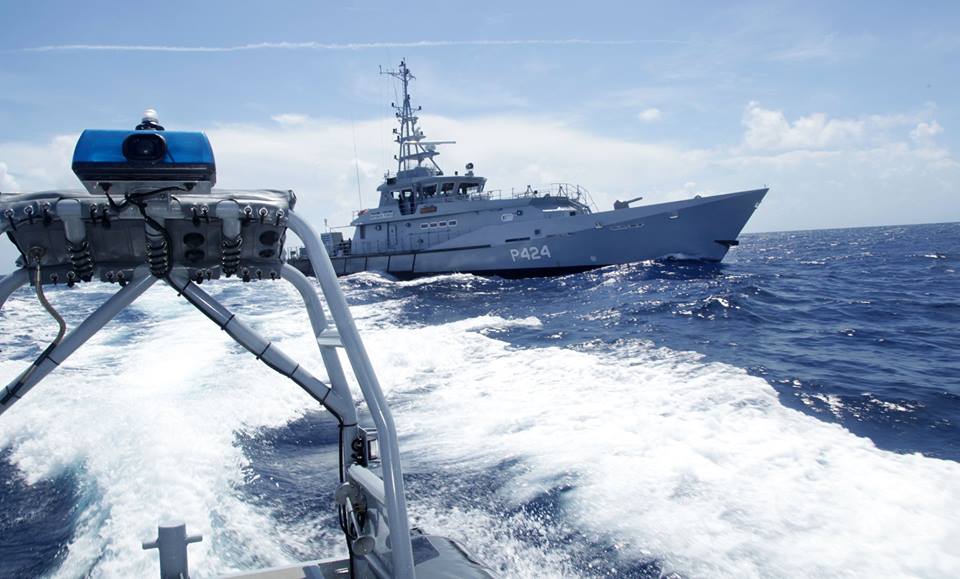
 Coral Harbour Base, 3 Sept 2015 (RBDF): It was on a Thursday shortly before 8 p.m. when my cell phone rang. I looked at my phone for a brief second, thoughts began racing through my mind as I recognized the number and then I answered feverishly, “Hello?”. It was my senior on the other end of the line with a sound of relief in his voice, he replied.
Coral Harbour Base, 3 Sept 2015 (RBDF): It was on a Thursday shortly before 8 p.m. when my cell phone rang. I looked at my phone for a brief second, thoughts began racing through my mind as I recognized the number and then I answered feverishly, “Hello?”. It was my senior on the other end of the line with a sound of relief in his voice, he replied.
“Good! You answered. I need you to make your way out at the port at midnight. You will join the ships company to slip harbor tonight in a couple hours for seven days to document the patrol. Have a safe trip and he hung up.
As I received my orders my heart skipped a beat and with no one else around to verify whether or not this reality was a dream or this dream was a reality, I had to just stop take a deep breath and relax. Even though the orders came hard and fast, I was eager to go out to sea. I was waiting on the opportunity to do my part as we prepared for the storm. I was ready to help prepare and protect my country, our country.
What should have been a typical 24-hour shift lined with fatigues to complete in the morning, suddenly became anything but typical. But what was I to expect? The Bahamas was in its first trimester of its hurricane season and Tropical Storm Erika was due to make landfall that upcoming weekend.
As a Marine Seaman on the Royal Bahamas Defence Force, it has definitely been a new experience for me. A marine can be called at a moment’s notice to perform his duties. That’s just the nature of the organization. Therefore, being in a constant state of readiness is crucial. However, in addition to individual preparedness, organizational preparedness is also important and this hurricane season showed me just how prepared we, the Defence Force, are in times of potential disaster.
As I followed the updates of Tropical Storm Erika, I learned that The Bahamas was lined up perfectly like bowling pins for a clean strike in hurricane alley. I saw citizens and residents making final attempts to protect life and secure property. Supermarket aisles were packed, store shelves were emptied, home cupboards were filled and anticipation for the oncoming tropical storm grew.
All the while, we at the Royal Bahamas Defence Force were also making preparations of our own. Though faced with a potential disaster, we took numerous precautions under the direction of Captain Tellis Bethel, the Commander Defence Force (Acting), and his command team to help safeguard our country and stood ready to provide assistance at a moment’s notice.
Subsequently, Advance Teams were dispatched ahead of the storm to various islands such as Mayaguana, Governor’s Harbour and Abaco to assist with the coordination and preparation of hurricane relief efforts. Impact Teams were standing by ready to provide immediate support to pre-defined Advance Teams and affected Family Islands for road, airport, and harbour clearing along with restoration of the basic utilities following the passing of the storm.
Defence Force Hurricane Shelter Managers were ready to be stationed at 25 shelters throughout New Providence. Standby Security and Urban Search and Rescue Teams were also established to provide immediate security assistance to shelter managers and local communities, in the event of security threats or missing persons. Teams were also formed to assist families of Defence Force personnel who were abroad and about to face the wrath of Tropical Storm Erika.
Marines were assigned to the National Emergency Management Agency (NEMA) to assist with the coordination of national hurricane relief efforts. Defence Force patrol crafts were dispatched to various locations throughout the Bahama chain of Islands, where they prepared for the aftermath of the storm.
Military Police Personnel were stationed at key Government and foreign diplomat facilities in New Providence to provide necessary security. Hurricane Platoons were also standing by to provide further support with hurricane mitigation efforts during and after the storm in Nassau and the Family Islands.
We seemed to have covered all the major areas of concern. Most people didn’t see any of it, but while the average Bahamian was on alert for Tropical Storm Erika making landfall, Defence Force marines were already out to sea and on the various family islands anticipating the potential disaster, positioning themselves for what was to come.
In a turn of events, Tropical Storm Erika, instead of striking The Bahamas, decided to throw a curve ball, swung around our archipelago and eventually dissipated. However, this provided the Defence Force with an opportunity to put our hurricane plan of action under a microscope, allowing us to identify both our strengths and our weaknesses for the next call of duty. This will undoubtedly enhance our plan of execution in the future if needed.
As some of the country’s best trained assets, sufficient gratitude cannot be expressed to the Defence Force marines who continuously and selflessly render their service towards our country’s defence, wherever and whenever called. Leaving your family behind is never easy at such a time, so I can tell my fellow brothers in arms thank you for your service because you are keeping my loved ones safe also as I am to yours.
The families of marines must also be acknowledged for their continued support of their loved ones during such times, as these brave men and women of the Defence Force are deployed to safeguard our heritage. Many of us were far from our families and homes, but as a nation, you did not allow us to be far from your thoughts and prayers.
Thank you to all our supporters. Your support and well wishes are always appreciated.
Magnetic Media is a Telly Award winning multi-media company specializing in creating compelling and socially uplifting TV and Radio broadcast programming as a means for advertising and public relations exposure for its clients.

You may like
-
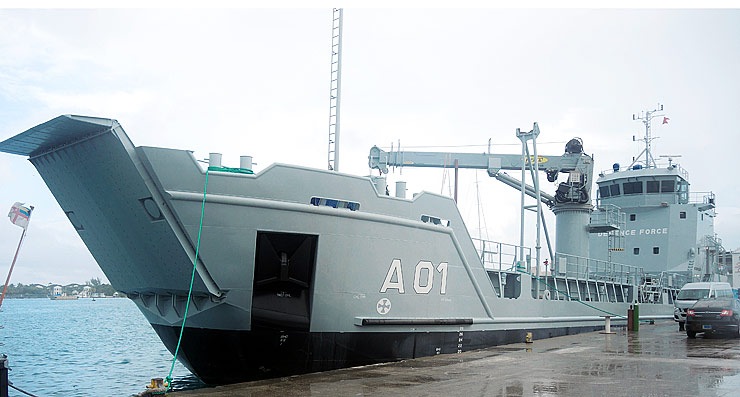

Haitian Migrants Apprehended
-
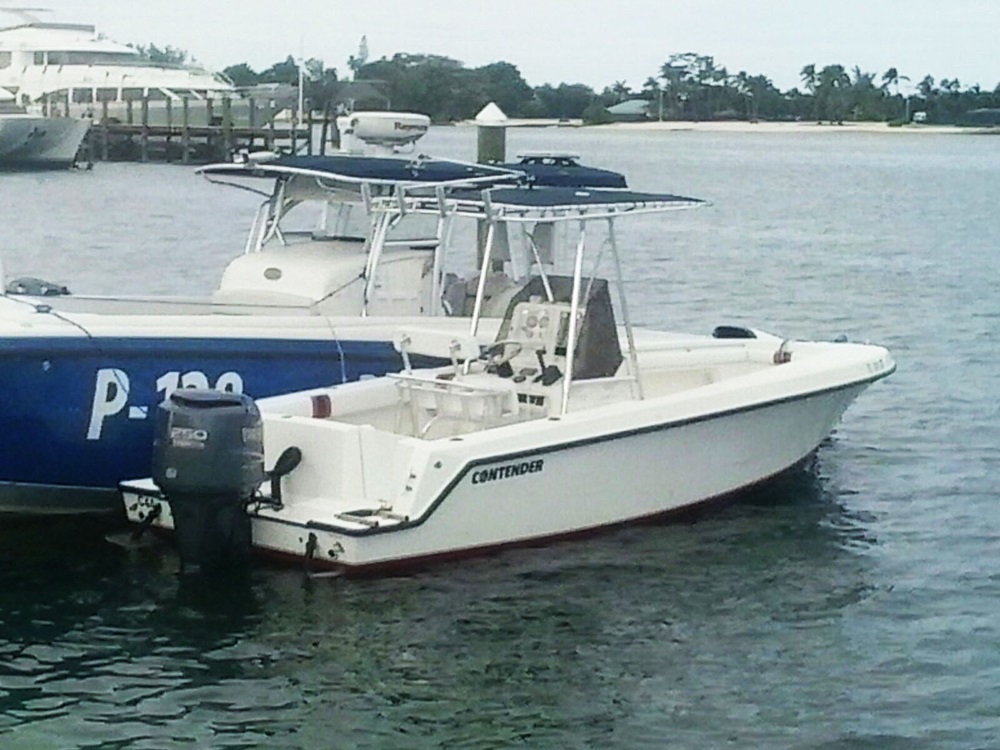

Recovery Of Stolen Vessel From Atlantis Marina
-
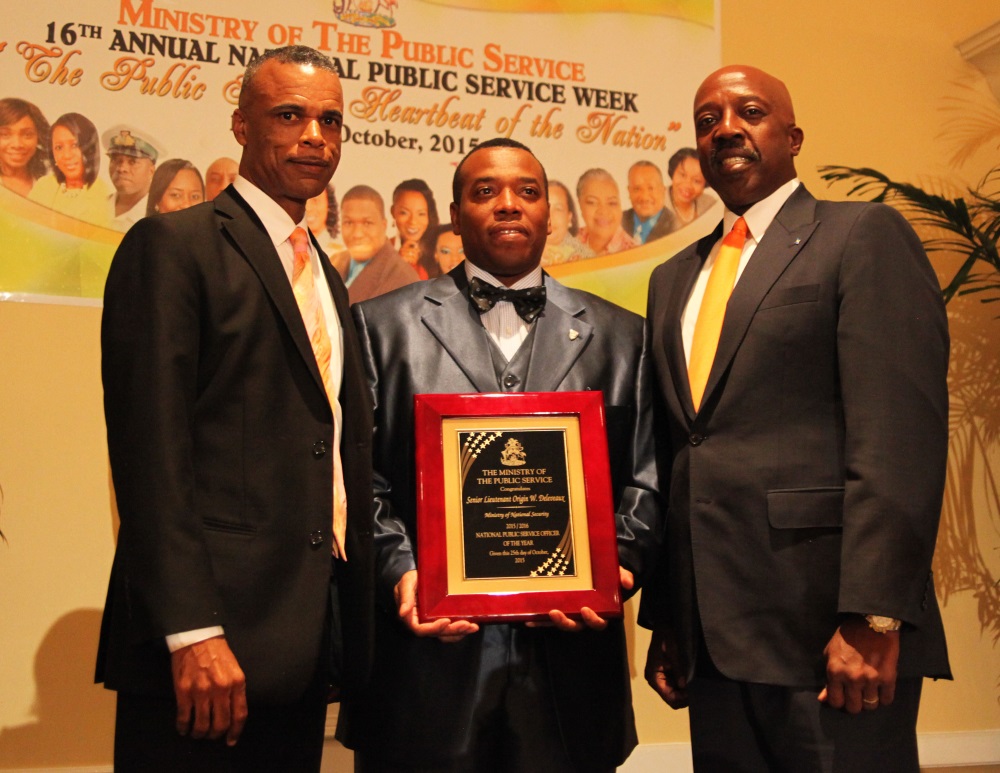

Defence Force Makes History With Public Service Award
-
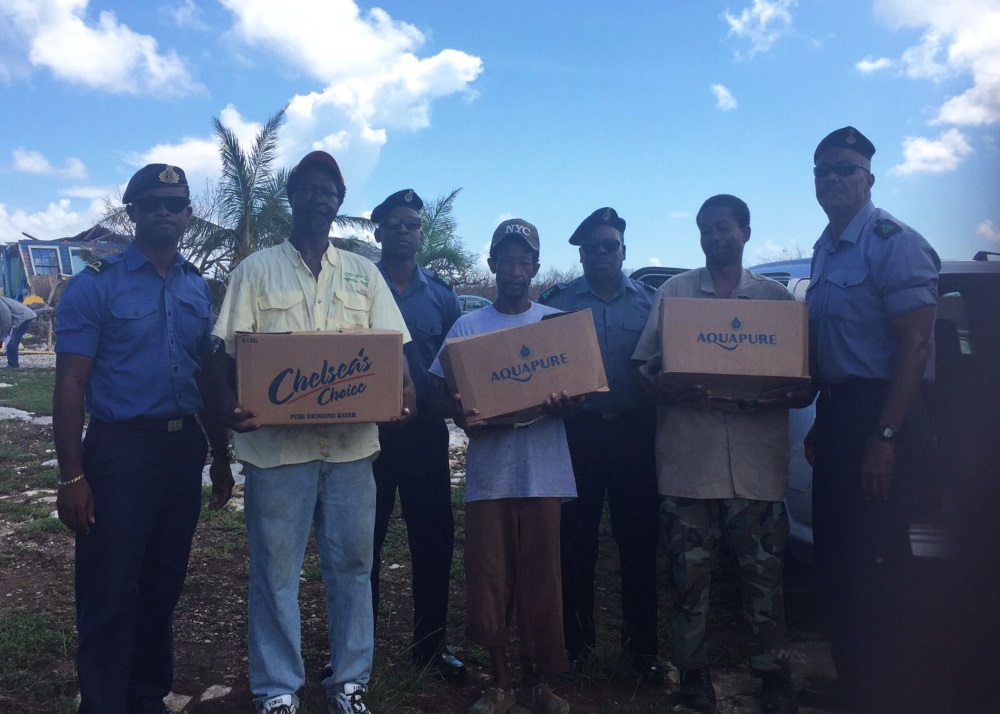

HMBS Durward Knowles Provides Hurricane Relief To Long Island Residents In Clarence Town
-
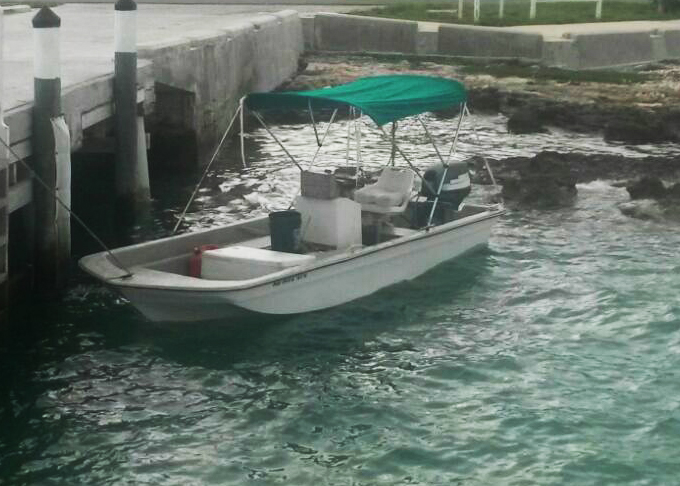

4 Men Arrested By Royal Bahamas Defence Force For Fisheries Violations
-
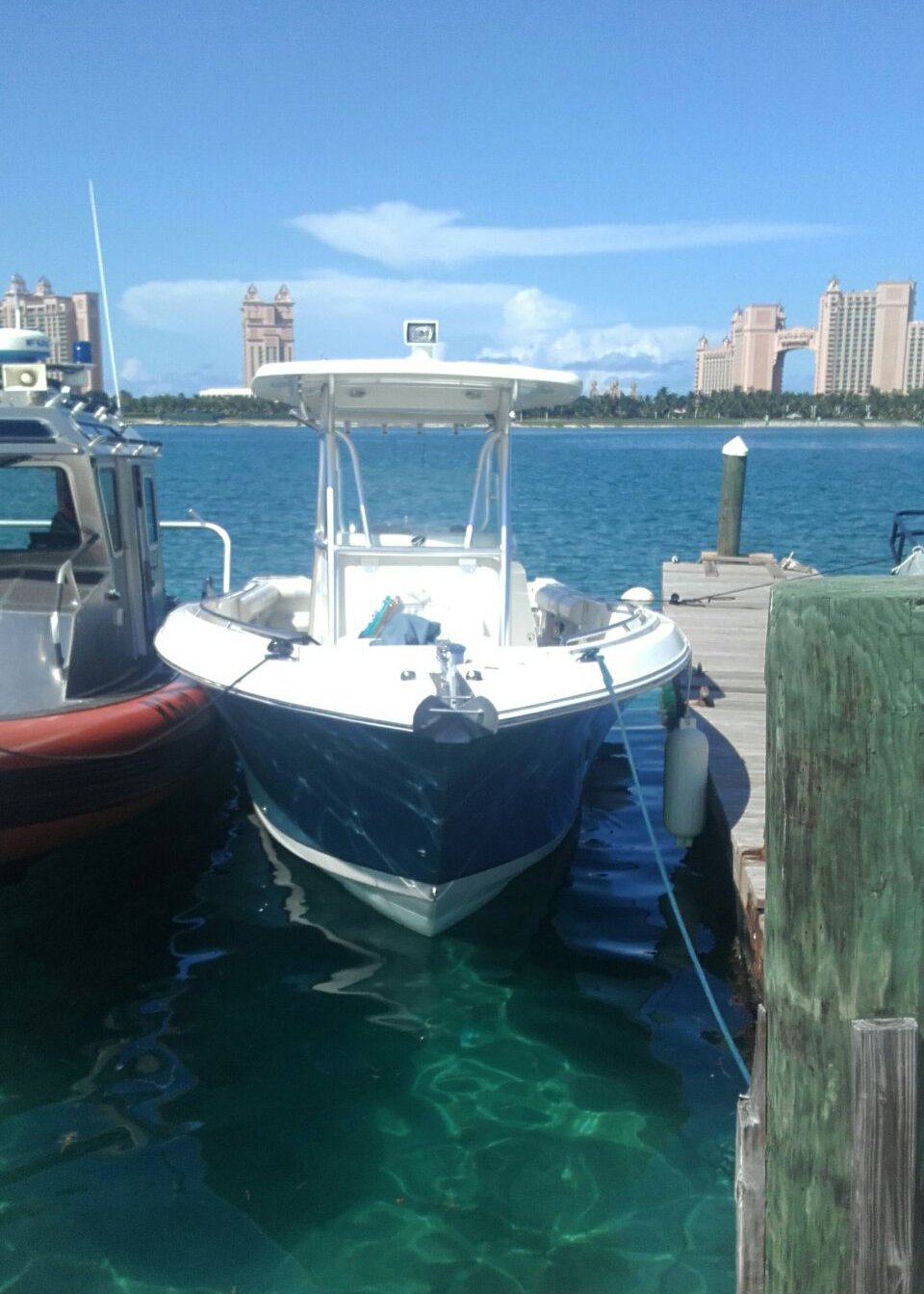

Royal Bahamas Defence Force Harbour Patrol Unit Recovers Stolen Vessel
News
Commonsense, Not Confrontation: Why Kamla Persad-Bissessar Is Right
Published
1 month agoon
December 27, 2025
This debate did not start with Donald Trump, and it did not start this month.
For more than a decade, this reporter has had a front-row seat to repeated, urgent calls from across the Caribbean for stronger intervention by the United States in response to gun- and narcotics-fuelled violence that has hollowed out our communities. Long before today’s headlines, leaders warned that transnational gangs were outgunning police, draining public resources and stealing our youngest people.
Much of the public messaging leaned toward calls for fewer guns flowing from the United States, but the practical response from Washington evolved into something else: tactical undergirding of the Caribbean. Training, intelligence sharing, maritime surveillance and joint operations expanded under successive U.S. administrations — Republican and Democrat alike.
Then came Venezuela.
President Nicolás Maduro proved himself an unhinged and destabilising force, openly threatening Guyana’s oil-rich territory and pushing the region to the brink of a conflict no Caribbean state could afford. The United States showed up. The threat of war was blunted. That mattered.
But while geopolitical flames were contained, the narcotics trade exploded.
CARICOM convened emergency meetings on transnational gang violence. Crime became so pervasive that it was formally classified as a public health threat. Entire communities were terrorised. Courts clogged. Police forces stretched beyond capacity.
And now — quietly but noticeably — the tempo has shifted.
While no single forensic study can capture the full picture, it is easily verifiable on the ground that major narcotics busts and trafficking activity have slowed in recent months. Something has changed. Pressure works.
This is the reality Prime Minister Kamla Persad-Bissessar is responding to.
Her critics accuse her of breaking ranks. What she is actually doing is refusing to indulge in strategic hypocrisy — demanding international help to confront narco-terrorism while appearing to defend or excuse the very networks and actors we have spent years condemning.
Sovereignty is not an insult. The Caribbean invokes it constantly. To deny it to the United States — especially when the policies in question were telegraphed months in advance and remain adjustable — is not diplomacy. It is posturing.
What is most troubling is the region’s selective memory. CARICOM has directed months of rhetorical fire at Trump-era policies, yet when disaster struck — from security crises to Hurricane Melissa — the United States remained one of the region’s most reliable supporters. Outcomes matter more than allegiance theatre.
Kamla Persad-Bissessar is not suffering from Trump Derangement Syndrome. She is applying commonsense statecraft. She understands that small states do not gain leverage by moral outrage alone, and that credibility is lost when we appear aligned with individuals, regimes or activities we ourselves have deemed a threat.
Her warning to CARICOM is simple and necessary: do not undermine your own cause.
The Caribbean’s fight against narco-violence, corruption and instability has been long, costly and painful. If pressure is finally producing results, we should be wise enough to recognise it — and brave enough to say so.
Angle by Deandrea Hamilton. Built with ChatGPT (AI). Magnetic Media — CAPTURING LIFE.
News
Beaches Turks and Caicos Showcases and Supports Local Creativity
Published
5 months agoon
September 12, 2025
September 12, 2025
PROVIDENCIALES, Turks & Caicos Islands – The Turks and Caicos Islands are home to a wealth of creativity, from artisans and craft vendors to musicians and performers. Beaches Turks and Caicos, the Caribbean’s leading all-inclusive family resort, has pledged its continued support for these individuals by providing meaningful platforms for them to share their skills and stories with guests from around the world.
The resort’s commitment is most evident in its weekly Cultural Night showcase, where visitors are immersed in the vibrant traditions of the islands. Guests enjoy live performances which feature local music genres such as ripsaw, while artisans display and sell handmade creations. This event not only enriches the guest experience but also strengthens economic opportunities for local entrepreneurs.
Entertainment Division Manager Garett Bailey emphasized the significance of Cultural Night, “we want to showcase everything the Turks and Caicos Islands culture has to offer. Our goal is for guests to leave with a deeper appreciation of the island’s art, music and traditions, while giving local talent the opportunity to share their creativity with visitors from across the globe.”
Beyond Cultural Night, Beaches Turks and Caicos also welcomes local craft vendors onto the resort every Wednesday and Friday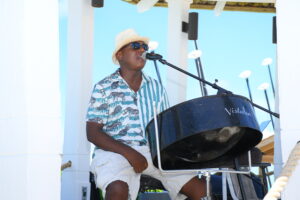 where they are offered a direct space to market their goods. Guests have easy access to the Turks and Caicos Cultural Marketplace, where they can purchase authentic local arts and crafts.
where they are offered a direct space to market their goods. Guests have easy access to the Turks and Caicos Cultural Marketplace, where they can purchase authentic local arts and crafts.
Managing Director, James McAnally, highlighted how these initiatives reflect the resort’s broader mission, “we are committed to celebrating and sharing the vibrant culture of these islands with our guests. By showcasing local artistry and music, we not only provide entertainment but also help sustain and grow the creative industries of the Turks and Caicos Islands. From our cultural showcases to nightly live music, we are proud to create authentic connections between our guests and the people of these islands.”
Local musician Keon Hall, who frequently performs at the resort, expressed gratitude for the ongoing partnership, “being able to share my music with Beaches’ guests has created lasting relationships. Some visitors return year after year and request songs from previous performances. This partnership continues to celebrate what we do and strengthens the bond between local artists and the resort.”
The resort’s support of local artisans and entertainers extends beyond business opportunity; it is about preserving heritage and sharing stories. Guests take home more than souvenirs; they leave with experiences that deepen their understanding of Turks and Caicos’ culture and history.
Public Relations Manager, Orville Morgan, noted the importance of this commitment, “for many visitors, these interactions represent their first genuine connection to the Turks and Caicos Islands. From artisans and musicians to farmers and transport operators, our local talent helps shape every guest experience. At Beaches, we are proud to give them the stage to share their stories and their heritage.”
Beaches Turks & Caicos remains dedicated to developing cultural connections and supporting the artisans, musicians and entrepreneurs whose creativity makes the Turks and Caicos Islands unique. Each guest experience is an opportunity to celebrate and sustain the spirit of the islands.
Caribbean News
“Barbecue” is Cooked! US Turns Over 11 Million Haitians into Potential Informants with $5 Million Bounty
Published
6 months agoon
August 12, 2025
August 12, 2025
The United States just set fire to the underworld in Haiti — and this time, the smoke might finally flush out the man many call the most feared in the Caribbean.
On Tuesday, the U.S. government slapped a $5 million bounty on the head of Jimmy “Barbecue” Chérizier, the ex-police officer turned gang boss accused of orchestrating massacres, torching neighborhoods, and strangling Haiti’s capital into chaos. This isn’t just a headline — it’s a full-blown game-changer.
turned gang boss accused of orchestrating massacres, torching neighborhoods, and strangling Haiti’s capital into chaos. This isn’t just a headline — it’s a full-blown game-changer.
That kind of cash — offered under the State Department’s Transnational Organized Crime Rewards Program — is enough to turn the country’s entire population, more than 11 million people, into potential informants overnight. Add the millions in the Haitian diaspora, and Chérizier isn’t just wanted. He’s surrounded.
The Number That Changes Everything
Five million U.S. dollars today equals about 655 million Haitian Gourdes. In a country where many scrape by on less than $5 a day, that’s not just life-changing — it’s life-defining. It’s enough to rebuild homes, put generations through school, or buy a one-way ticket far from the gunfire.
In a place where trust is scarce and survival is everything, that figure is more than tempting — it’s irresistible. For Chérizier, it means every friend could be a future informant, and every loyalist might be calculating the cost of staying loyal.
‘We Will Find Them’ — Jeanine Pirro, U.S. Attorney
Jeanine “Judge Jeanine” Pirro, the U.S. Attorney, set the tone with fire in her voice. “This indictment is the first of its kind,” she announced. “Jimmy Chérizier, also known as ‘Barbecue,’ is a notorious gang leader from Haiti who has orchestrated and committed various acts of violence against Haitians, including the 2018 La Saline attack in which approximately 71 people were killed. He both planned and participated in that massacre.
“Anyone who is giving money to ‘Barbecue’ cannot say, ‘I didn’t know.’ They will be prosecuted, and we will find them. They are supporting an individual who is committing human rights abuses, and we will not look the other way.”
Pirro wasn’t just going after Chérizier. She was sending a warning to the Haitian diaspora accused of feeding his war chest from abroad: the days of claiming ignorance are over.
‘No Safe Haven’ — Darren Cox, FBI
Then came Darren Cox, Deputy Assistant Director of the FBI, delivering the muscle of America’s most powerful investigative force. “There is no safe haven for Chérizier and his network,” Cox declared. “We are closing every link, every cell.” Since January, he said, the FBI has arrested three Top Ten fugitives, taken more than 19,000 criminals off the streets, and seized thousands of tons of narcotics — enough to save millions of lives across the U.S.
The FBI’s Miami and Houston offices have already bagged one of Chérizier’s Viv Ansanm associates inside the United States without firing a shot. “These efforts are a deliberate and coordinated plan,” Cox said, “to protect our communities and confront escalating threats from terrorist organizations like Viv Ansanm.”
‘Three-Year Investigation’ — Ivan Arvelo, HSI
Ivan Arvelo, Assistant Director of Homeland Security Investigations, brought the receipts. “This is the result of a three-year investigation into Chérizier’s procurement networks, cash pipelines, and operational financing that violates sanctions,” he explained. Arvelo described 400 structures destroyed, entire communities erased, and a gang exploiting U.S. dollars, technology, and immigration loopholes to keep its killing machine running. “We tracked how Americans unwittingly bankrolled brutality,” he said — proof that the net is tightening both inside Haiti and abroad.
‘The Worst of the Worst’ — Chris Lambert, State Department
Chris Lambert, representing the State Department’s International Affairs division, gave the political bottom line.
“Mass violence in Haiti must end,” Lambert said. “The instability resulting from Chérizier’s actions fuels illegal migration, regional instability, and transnational crime. We will continue to apply every tool available — including our rewards programs — to stop the spread of unchecked violence, especially to target the worst of the worst criminal leaders threatening the people of our hemisphere.”
instability, and transnational crime. We will continue to apply every tool available — including our rewards programs — to stop the spread of unchecked violence, especially to target the worst of the worst criminal leaders threatening the people of our hemisphere.”
Lambert confirmed what many have long known: Chérizier is not just a gang leader. He commands Viv Ansanm, officially designated in May as a Foreign Terrorist Organization. In the eyes of the U.S., that makes him not just Haiti’s problem — but everyone’s.
Why Haitians May Not Resist
In Haiti, money talks — loudly. And when you put 655 million Gourdes on the table, it shouts.
That’s the kind of figure that turns casual acquaintances into informants and makes even the most hardened loyalist wonder if the payout is worth more than the risk. It’s not a matter of “if” word gets out, it’s a matter of “who will be first to collect.”
For grieving families, it’s a chance at justice. For the desperate, it’s a chance at survival. For Haiti as a whole, it’s hope — wrapped in the most dangerous of temptations.
An Answer to Prayers
For years, Haiti’s headlines have been a scroll of horrors — kidnappings, executions, burned neighborhoods, bodies in the streets. Chérizier’s name has been attached to too many of them.
This move by the U.S. isn’t just strategy. It’s personal. It’s a signal to every Haitian — at home or abroad — that the days of impunity could be ending.
I’ll admit it: when I heard the news, I danced, I sang, and I nearly cried. Not because $5 million is a lot of money, but because of what it means — the possibility, at last, of stopping the man accused of helping turn Haiti into hell on earth.
Four officials, four angles, one mission: Pirro’s fire, Cox’s grit, Arvelo’s precision, Lambert’s conviction. Together, they’ve put the heat on “Barbecue” like never before.
BBQ is cooked. The only question now is: which one of over 11 million potential informants will serve him up?




